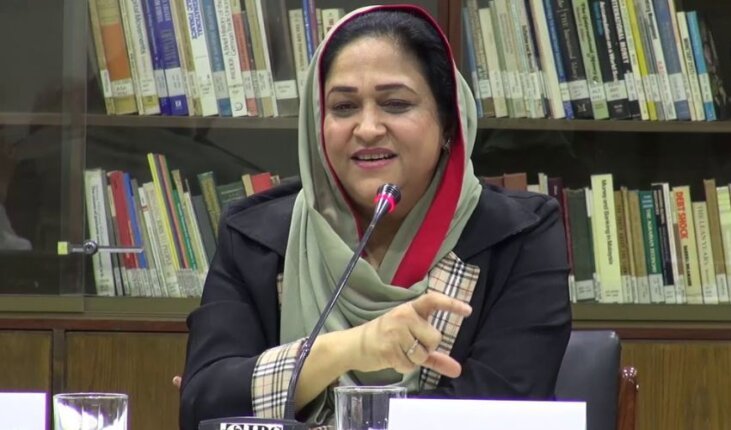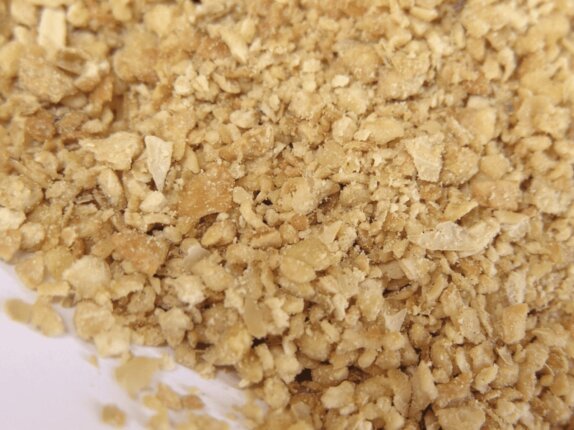ISLAMABAD: In a dramatic turn of events, Ms. Farzana Altaf Shah, Director General of the Pakistan Environmental Protection Agency (Pak-EPA) under the Ministry of Climate Change & Environmental Coordination (MoCC&EC), has been suspended for 120 days by the Prime Minister under Rule 5(1) of the Civil Servant (E&D) Rules, 2020. The suspension order did not cite any reasons. However, sources inside Pak-EPA suggest that the move was triggered by her refusal to issue licenses for the import of genetically modified (GMO) soybean meal without proper risk assessment.

Pressure from powerful interests
According to insider reports, Ms. Farzana Altaf Shah resisted pressure from Mr. Ahad Khan Cheema, a former bureaucrat-turned-politician who currently serves as the Federal Minister for Economic Affairs and Federal Minister for Establishment, and Ms. Aisha Humera, Secretary of MoCC&EC. They allegedly pushed for the approval of import licenses for influential poultry feed companies, SB Feeds and Zubair Feeds, bypassing standard risk assessments.
On March 28, 2025, the Secretary MoCC&EC was summoned to the Prime Minister’s Office with a suspension summary for Ms. Shah, which was swiftly approved.
Allegations of corruption and manipulation
Sources reveal that Dr. Mazhar Iqbal, a professor in the Department of Environmental Sciences at Quaid-i-Azam University (QAU), was allegedly charging poultry feed mills Rs. 3 million each to secure a favorable letter from the Institutional Biosafety Committee (IBC) at QAU. This letter was reportedly used to validate foreign studies in favor of GMO soybean meal import approvals.
Meanwhile, Dr. Yousaf Zafar, allegedly working on behalf of multinational corporations, was accused of leveraging his role as Vice President of the Pakistan Central Cotton Committee (PCCC) to pressure Ms. Shah into approving GMO canola imports without proper risk assessment.
Regulatory bypasses and industry concerns
Sources claim despite her initial resistance, Ms. Shah eventually held a Technical Advisory Committee (TAC) meeting and recommended that the National Biosafety Committee (NBC) approve the import of GMO soybean meal. However, the rapid approval process raised concerns from the All Pakistan Solvent Extractors’ Association (APSEA). The association sent a letter to the Prime Minister, highlighting how the TAC approved soybean meal imports within 24 hours, without proper risk analysis or biosafety measures.
Following APSEA’s concerns, the Secretary MoCC&EC canceled the NBC meeting, allowing more time for evaluations by Pak-EPA, MoCC&EC, the Department of Plant Protection (DPP), and the Ministry of National Food Security & Research (MoNFS&R). APSEA also recalled a past incident where a poultry feed mill imported substandard and contaminated soybean meal from India, which was later rejected and returned by DPP.
APSEA argued that Pakistan’s solvent extraction plants already meet the country’s soybean meal needs and warned that unregulated imports could destabilize the local industry, disrupt markets, and undermine local investments. The association urged the government to halt approvals for GMO soybean meal imports until a proper regulatory framework is in place.
Poultry industry’s counterclaims
Conversely, poultry industry representatives accused APSEA of monopolizing GMO meal prices, selling it at higher rates than imported GMO meal, even after paying a 20% duty. They claimed that imported GMO soybean meal is of superior quality compared to locally produced soybean meal, which often contains high levels of aflatoxin due to poor storage conditions.
Additionally, they pointed out that the government justified GMO soybean imports over non-GMO soybean due to lower costs and argued that the same rationale should apply to GMO soybean meal imports to break APSEA’s alleged monopoly.
Amendments to biosafety rules and alleged favoritism
Ms. Shah previously introduced amendments to Pakistan Biosafety Rules, 2005, through SRO No.45(1)/2024, exempting risk assessments of GMO seeds for food and feed in local conditions. Instead, she linked license permissions to foreign studies evaluated by local IBCs. Allegedly, Dr. Mazhar Iqbal leveraged this amendment to extract payments from companies seeking GMO soybean import approvals.
Insiders claim that Mr. Ahad Khan Cheema, Dr. Kausar Abdullah Malik (former interim federal minister for MoNFS&R), and Dr. Yousaf Zafar played key roles in pushing these amendments, despite the interim government lacking legal authority under Section 230 of the Election Act. Legal experts argue that these amendments violate Articles 8, 9, and 25 of the Constitution of Pakistan, as well as multiple provisions of Pakistan Biosafety Rules, 2005.
Regulatory failures in GMO Soybean imports
Previously when four shipments of GMO soybean seeds arrived from the U.S., Pak-EPA inspectors allegedly received direct instructions from PM office and Ms. Aisha Humera to skip verification of the 47 permitted GMO events in the shipments. Consequently, DPP and customs released all four vessels without sampling or testing, violating biosafety and biosecurity protocols.
Meanwhile, the Prime Minister’s Office is reportedly pressuring Mr. Waseem Ajmal Chaudhry Secretary MNFSR, to remove onshore disinfestation and devitalization requirements for GMO soybean cargoes, allowing biosecurity clearance based solely on foreign phytosanitary certificates. Critics warn that this could expose Pakistan to invasive pests, increase pesticide imports, and threaten local agriculture.
Currently, 46 invasive and quarantine pests are associated with U.S. soybean shipments, raising serious biosecurity risks. Experts fear that their introduction could drive up pesticide imports, which already exceed Rs. 130 billion, further threatening Pakistan’s agricultural exports.
Controversial import permits from Brazil
Ms. Shah also allegedly approved GMO soybean imports from Brazil without verifying foreign studies on Brazilian GMO soybean events. Despite DPP’s technical team highlighting major flaws in Brazil’s plant quarantine system, Mr. Tahir Abbas, Director General of DPP, issued the import permit.
According to insiders the Secretary of MoNFS&R, acting as Chairman of the Agricultural Pesticides Technical Advisory Committee (APTAC), has now formed a committee to replace existing phytosanitary treatments with a “system approach.” However, no country—including the U.S., Australia, India, China, or New Zealand—has adopted such a method due to its complex, lengthy procedures.
What’s Next?
Ms. Farzana Altaf Shah’s suspension has raised serious concerns over whether she was removed for resisting undue pressure from powerful industry players. The controversy surrounding GMO soybean meal imports remains unresolved, with local industries, environmental safety, and food security hanging in the balance. As regulatory authorities navigate these complex issues, their decisions will have lasting implications for Pakistan’s agricultural and industrial sectors.




